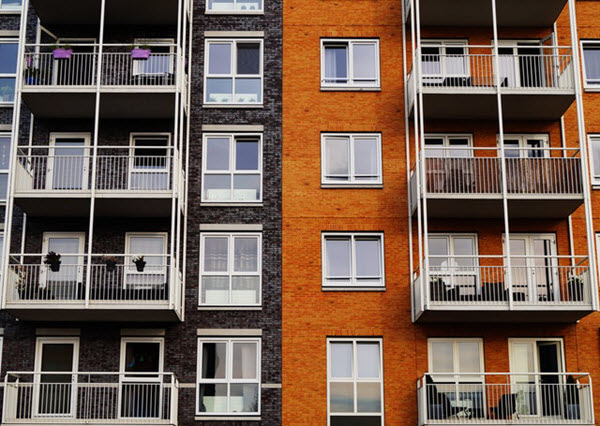Living in a high-cost area has its perks. There’s a lot of high paying jobs, which means you have a lot more opportunity to earn. And since things can cost more, you’re less likely to consume them. This translates to lower living standards. Of course, those ideas don’t apply to everyone and not all people can live well in an expensive city. Whether you’re looking to pinch pennies or you’re struggling to make ends meet, here are some tips on how to reduce expenses when you live in a high-cost area.
Saving on your housing
 Of course, your rent will be one of your highest bills. If you live in a city like New York City, expect the average rental rate to be around $3,000 per month for a one-bedroom apartment. While this number is nothing to sneeze at, you can bring this cost down by doing the following:
Of course, your rent will be one of your highest bills. If you live in a city like New York City, expect the average rental rate to be around $3,000 per month for a one-bedroom apartment. While this number is nothing to sneeze at, you can bring this cost down by doing the following:
- Renting with friends or a co-worker- Consider finding a roommate to slash your rent by 50%. You can ask your friends or co-workers. If you can’t find one, try Craigslist or post on your local Facebook marketplace. Just be sure to screen for your security.
- Avoid the flashy areas– In most large cities, the rental opportunities are endless. And since they are in-demand, they are likely to cost more. Try to avoid those “flashy” areas and try to find a place that’s a few blocks away.
Saving on transportation costs
Transportation is a cost that can easily exceed $8,600 annually. The costs are derived from car payments, insurance, interest, repair costs, maintenance costs, gas, auto club fees, and more. When residing in an expensive city, the amount you pay out of pocket can increase every 6 to 8 months depending on the size of your vehicle and the length of your commute. The following are a handful of tips that can assist you in cutting or eliminating this (non-essential) expense:
- Carpool/Ride-share– This option allows you to decrease the wear and tear and fuel costs of your vehicle. The cost of ride-sharing (Lyft, Uber, ZipCar) is a mere fraction of the cost of owning a vehicle of your own.
- Utilize public Transportation– If you are in an area where public transportation is available, use it. It’s far less expensive than driving a vehicle around town.
Start decreasing your debt
You can decrease your monthly expenses by reducing or eliminating revolving debt. As you pay off your debts, you’ll receive fewer monthly bills and you’ll have more money to save. The following will show you a few ways to reduce debt and increase your savings:
- Use balance transfers– If a debt that you’re currently paying is attached to a high-interest rate, consider utilizing a balance transfer. It offers perks, like an 18-month APR of 0%. You can also try rewards programs but be certain to factor in all transfer fees. It is also best to pay the transferred balance during the introductory period (if plausible).
- Refinance– Contact your auto and homeowner insurance company and see if you qualify for a lower interest rate. A reduced rate can save you money over the life of your loan and this can make living in a high-cost area more affordable.
- Consolidate loans– Consolidation can provide you with a lower interest rate and a greater chance to pay off the loan quicker.
- Reduce credit card rates – You may be able to negotiate with your credit card company to reduce your current rate/s.
- Use auto debt repayment plans– This will keep you from missing payments and incurring late fees or rate increases.
- Spring clean and purge – Go through your home and gather unused or rarely used items. Once you have gathered them, sell them. This will give you some added income, no matter how small the amount may be. You’ll also be able to free up space.
Think about decreasing your energy costs
On average, American households spend approximately $2,200 annually on energy bills. Fortunately, advances in technology are making it easier for energy expenses to be slashed. Below are some ways to decrease your monthly costs for energy:
- Seal your home– This will prevent drafts which is a common issue with energy efficiency. The loss of heat or cool air can increase your costs.
- Use LED or CFL bulbs– These bulb types are (on average) four times more efficient than standard incandescent light bulbs. This simple change will save you $0.66 per month and (plausibly) $40 annually.
- Reduce the temperature of your hot water heater– 14% of your home energy cost is from your hot water heater. By reducing the temperature to between 125 and 130 degrees Fahrenheit and installing a water heater blanket, you will drastically decrease that cost.
- Install a thermostat that is programmable– This will allow you to decrease energy use when no one is at home, saving you money throughout the month.
- Unplug– Any electrical devices that are not in use should be unplugged. Whether on or off, they are still drawing electricity and adding to your monthly bill.
Decrease your entertainment costs
 Most people think of entertainment as dining out, heading to a movie theater or concert. Those are not your only forms of entertainment. Remember, you’re living in an expensive city so there are probably tons of low-cost entertainment options such as local museums or parks. Here are some of the things you can cut out to reduce your monthly expenses:
Most people think of entertainment as dining out, heading to a movie theater or concert. Those are not your only forms of entertainment. Remember, you’re living in an expensive city so there are probably tons of low-cost entertainment options such as local museums or parks. Here are some of the things you can cut out to reduce your monthly expenses:
- Cancel Club Memberships
- Eliminate or reduce your cable/satellite bill– Utilize streaming services, such as Netflix or the PlayStation Vue. There’s no reason to pay $100+ per month for cable TV purposes.
- Cancel magazine and newspaper wubscriptions– Read and view your favorites online for free.
Living in a high-cost area is doable and you can still successfully live in one if you’re smart with your money. Hopefully, by applying some of these tips, you can slash a few dollars off of your budget.
The post How to Reduce Expenses When You Live In An Expensive City appeared first on Dumb Little Man.
from
https://www.dumblittleman.com/how-to-reduce-expenses/

No comments:
Post a Comment